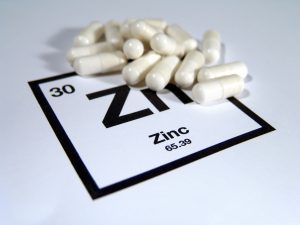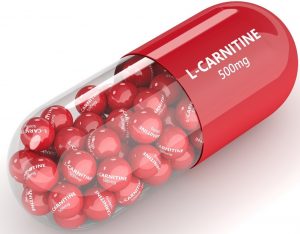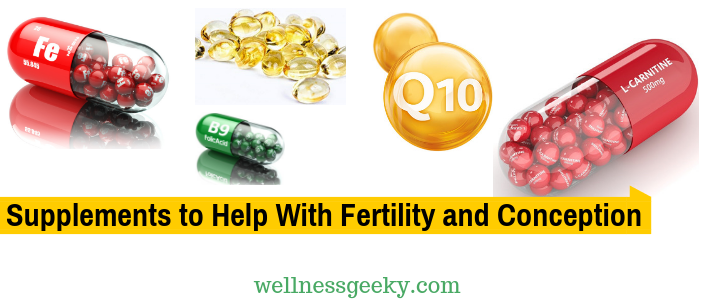
Potential parents have many questions when it comes to fertility.
One question frequently asked is if there is anything a woman can do to improve her chances of becoming pregnant.
Fortunately, the answer is yes. More fortunate still is that it’s an easy solution.
A simple way to aid the body in conceiving and preparing for pregnancy is to follow a healthy, nutrient-rich diet.
Try as we might, it isn’t always possible to get all the vitamins and minerals necessary for pregnancy through what we eat.
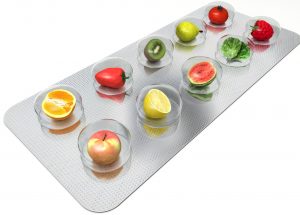
Adding a vitamin supplement to the daily routine is an easy way to get what is lacking in your diet.
However, certain supplements are better than others for fertility needs.
While it isn’t important to purchase expensive, high-end vitamins to get pregant, it is important to get specific supplements for preconception and not some random multivitamin blend.
Even those vitamins labeled for fertility or preconception aren’t always what you need.
They are often just general prenatal vitamins for overall good health.
The supplements most beneficial to fertility should contain one or more of the following vitamins.
Best Fertility Supplements To Get Pregnant
Zinc
The biggest surprise most people find when considering a fertility supplement to improve sperm is that both mom and dad should be taking zinc when trying to get pregnant.
It aids in the production of eggs, semen, and testosterone.
The American Pregnancy Association reports zinc deficiencies are related to poor semen production.
Oysters have the most zinc per serving than any other food, but, of course, many people don’t like them.
Fortunately, there are other foods rich in zinc, such as lobster, dairy products, beans, and crab.
Beta-Carotene
Beta-carotene is a phytonutrient which can aid in preventing miscarriage by regulating hormones.
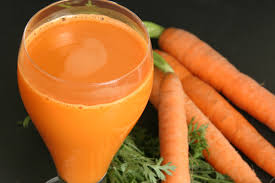
Vitamin A is plentiful in beta-carotene, but it is also helpful because of its strong antioxidant properties that stop free radicals from harming the egg or sperm DNA.
Studies have shown it to be a potent factor in sperm mobility.
Folic Acid
Medical professionals agree all women of childbearing age should be taking folic acid daily.
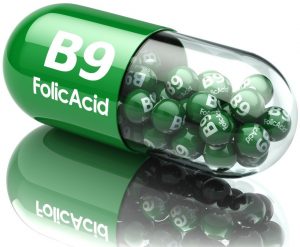
When pregnant, this vitamin increases blood production for the fetus and helps protect against a neural tube defect, which affects the baby’s spinal cord.
The neural tube develops early in the pregnancy so taking folic acid to prepare for pregnancy is essential (medical advice).
Iron
Many women don’t know they aren’t getting enough iron in their diet until they see a doctor when preparing for pregnancy.
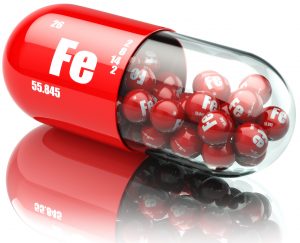
Pregnant women, however, need over 25 mg per day.
Iron is important in red blood cell production. It aids in hemoglobin production which is what carries oxygen in red blood cells.
Without the proper amount of iron, the body’s organs don’t receive enough oxygen to perform their duties.
Coenzyme Q10
Researchers believe there is a correlation between Coenzyme Q10 and the fertility of both men and women.

It is also important for basic cell functioning and aids in energy production in the mitochondria which boosts egg production, especially in older women.
Clinical tests have shown pregnancy rates are higher among those who took CoQ10 before pregnancy.
Bromelain
Scientists believe bromelain helps fertilized eggs implant themselves in the uterine wall.
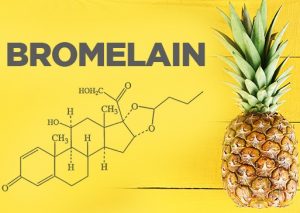
Bromelain is available as a dietary supplement, but satisfactory amounts are found in pineapple.
It is also said to be a mild pain reliever, anti-inflammatory, and anticoagulant, plus it may reduce the chance of miscarriage by rushing blood to the uterus and encouraging embryos to stick.
Just one or two slices of pineapple per day are enough to help.
Omega 3 Free Fatty Acid
The body can only obtain this essential fatty acid through food. It does not produce it on its own.
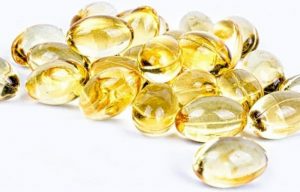
Those undergoing in-vitro fertilization methods may find it particularly helpful.
Studies have shown it to be helpful in improving embryo quality.
It improves egg quality, and ongoing studies hope to prove it also prolongs the age of reproduction in women who have a steady lifelong supply.
It’s also very helpful in men as it improves the motility and morphology of sperm.
Calcium
Everyone knows pregnant women need calcium. Few people, however, realize the importance of calcium in the diet of those trying to conceive.
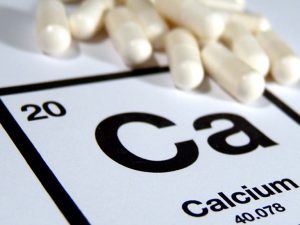
Not only does a growing fetus need calcium, but so does the mother.
Milk and leafy greens can add a considerable amount of calcium to a diet but if that doesn’t do the trick, add a calcium supplement.
How Can I Increase My Fertility Fast?
To boost your fertility, you need to go to a fertility clinic and undergo a number of tests and procedures. There are some tests that you can undergo to know your fertility status, and according to Dr. Blair Long, your chances of getting pregnant in the future are quite high if you have your little miracle early.
There are a number of things you can do to increase your fertility. The first step is to watch your weight and then seek the assistance of a fertility specialist. Along with diet and exercise, one should seek medical help if they are obese. Then, there are many treatments that can increase the chances of conception. It depends on which ingredients they contain, what you’re lacking, and the issue you might be facing. But most set out to regulate two main hormones, progesterone and estrogen — ultimately regulating the menstrual cycle. Having a healthy diet and exercising every day, regular medical checkups for pregnant women, medical checkups for men and women, and a number of other factors play a major role in increasing your chances of getting pregnant fast.
L-Carnitine
This amino acid is a big help to sperm. It affects motility, production, formation, and maturation.
Men with a low sperm count are often shown to have a deficiency in L-carnitine.
Studies have revealed promising results among women who took supplements of L- carnitine, pointing to improvements in age-related infertility.
It can usually be found in any multivitamin.
There are many dietary supplements that are beneficial to the fertility of both men and women.
Any department or drug store will carry a plethora of pills marketed to help in the pregnancy process.
While it is easy enough to run a quick internet search and find many fertility supplements, it isn’t quite as easy to tell exactly what your body requires.
The body should be in its best possible shape before pregnancy.
The only way to properly prepare for pregnancy is to see a doctor and discuss supplements and any other concerns you may have before the process begins.
Can I Take Anything to Increase My Chances of Getting Pregnant?
Increasing your chances of getting pregnant involves adopting a multifaceted approach that encompasses lifestyle changes, nutritional considerations, and understanding your reproductive cycle. Here are several science-backed strategies to enhance fertility:
1. Maintain a Healthy Lifestyle:
- Nutritious Diet: Consume a well-balanced diet rich in vitamins, minerals, and antioxidants. Focus on foods that support reproductive health, such as fruits, vegetables, whole grains, and lean proteins.
- Weight Management: Achieve and maintain a healthy body weight, as both underweight and overweight conditions can adversely impact fertility.
2. Understand Your Menstrual Cycle:
- Tracking Ovulation: Identify your fertile window by tracking your menstrual cycle. Ovulation predictor kits, basal body temperature charting, and cervical mucus monitoring are effective methods to determine when you are most fertile.
3. Folate Supplementation:
- Folic Acid: Take a daily supplement of folic acid, a B-vitamin known to reduce the risk of neural tube defects in the early stages of pregnancy. It is advisable to start supplementation before conception.
4. Manage Stress:
- Stress Reduction Techniques: Practice stress-reducing activities such as yoga, meditation, or mindfulness. Chronic stress can affect reproductive hormones and interfere with fertility.
5. Limit Alcohol and Caffeine Intake:
- Moderation is Key: Limit alcohol intake and moderate caffeine consumption. Excessive alcohol and caffeine can negatively impact fertility.
6. Avoid Smoking:
- Quit Smoking: If you smoke, consider quitting. Smoking has been linked to decreased fertility in both men and women.
7. Regular Exercise:
- Moderate Exercise: Engage in regular, moderate-intensity exercise. However, excessive exercise can potentially impact fertility, so it's essential to strike a balance.
8. Seek Medical Advice:
- Consult with a Healthcare Professional: If conception proves challenging, seek guidance from a healthcare provider. They can conduct fertility assessments and offer personalized recommendations based on your specific situation.
Remember, individual fertility factors vary, and it's advisable to consult with a healthcare professional for personalized advice tailored to your unique circumstances.
